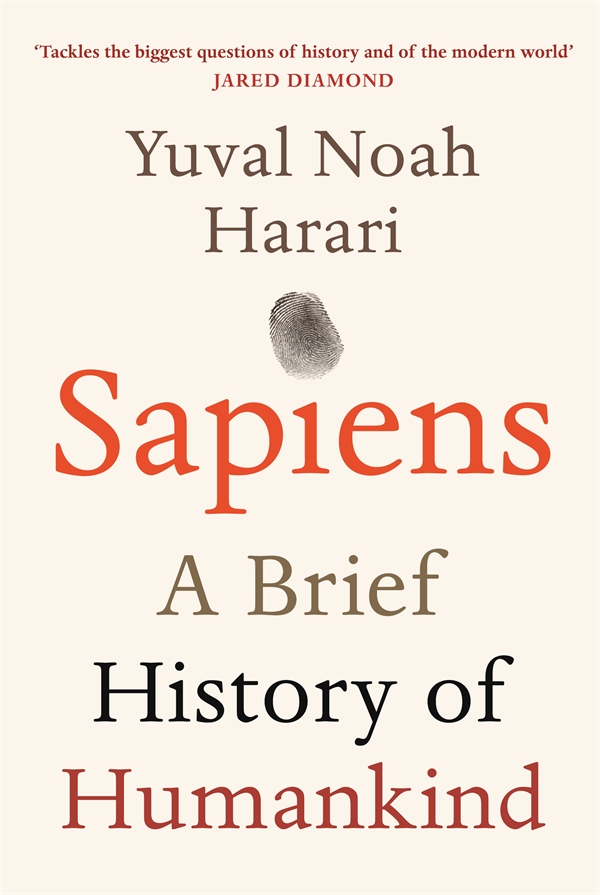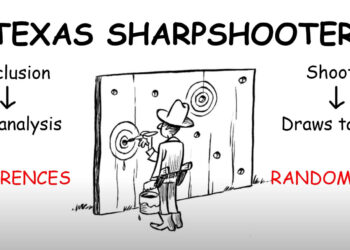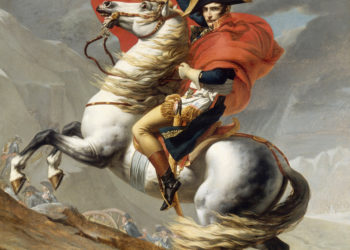
If you were unfortunate enough to catch me after a beer this past month, you probably know about the book I’ve been reading — Sapiens: A Brief History of Humankind by Yuval Noah Harari.
It’s an excellent book I’m happy to talk about.
Harari is on the younger side of the scholarly world, barely 40 years old now, which is a year after the book’s initial publication and certainly years after he started work on it. He is a gifted thinker and writer, with a clear, wise voice and a descriptive, logical style that seems timeless. It reminded me of Edward Gibbon, but without quite the biting humor Gibbon could weave into his crystal clear prose.
Because much of what makes Sapiens such an astounding and rewarding read is how Harari unveils insight after insight, writing a review of it is a challenge. The insights come regularly, and he drops them so adroitly I found myself repeatedly putting the book down to take a walk and ponder the implications. I don’t want to ruin that experience for you.
To minimize the spoiler damage I might do, I’ll limit my review to general recommendation of “read this if you want to understand humanity better and come closer to accepting its strange ways and place in the world,” while adding some thoughts about a few threads that have relevance to scholarly publishers, editors, and researchers.
Harari starts by observing that many other Homo species existed contemporaneously with us, but we are the only one that remains, which is both impressive and worrisome. Homo neanderthanlensis, Homo erectus, Homo habilis, Homo floresiensis, and others all vanished around the time that Harari labels the “cognitive revolution” of Homo sapiens.
Many changes occurred at this time, but one that seems to have set us apart was our ability to gossip, using spoken and written language to talk about each other and compare notes on a broad scale.
Add to this our ability to create fictions that allowed us to unify in ways the other species show no evidence of having done on a scale comparable to ours, and you have quite a group. Combining these two attributes allowed us to form larger groups, coordinate our activities much more closely, close ranks more effectively, marshal more resources to complete our plans, keep tabs on each other well, dream up reasons to do things, and dominate the other species we encountered. Quickly, our mid-food-chain species rocketed to the top. It happened so fast that we’re still feeling a little wobbly about the change in our fortunes.
The “gossip” and “fiction” aspects have relevance to the scholarly publishing world, as we deal with both. What we publish is very refined gossip from labs and researchers all over the world, who are participating in a fictitious human endeavor we call “science.”
Tying the concept of “gossip” to our world is somewhat freeing, but takes nothing away from the seriousness of what we do. After all, gossips who spread misinformation are ostracized, and deservedly so — it goes for the originator (author) or the transmitter. Making sure the gossip is correct matters a great deal to the reputation of those involved. And that, my friends, is your new way of thinking about journal publication — fancy gossiping.
But science is a fiction? To Harari it is, albeit an important and useful one. Harari makes a clean distinction between natural reality and human fictions. There is nothing in the natural world that is “science” — we made it up, and if we perish, it perishes, too. Science is a human fabrication, one we are constantly refining or redefining. We lived for tens of thousands of years without it — expanding our territories, making and remaking cultures, and dominating the animal world. It only mattered from about the year 1500 onward.
With the invention of science (an excellent and related book is David Wootton’s The Invention of Science: A New History of the Scientific Revolution), a great deal of human potential was unleashed. As Harari writes:
[Since 1500]. . . human population has increased fourteen-fold, production 240-fold, and energy consumption 115-fold.
But, as both Harari and Wootton point out, before the invention of science came the invention of ignorance, a fascinating transition itself. Instead of thinking that all knowledge existed among priests or royalty, suddenly — likely with Columbus’ expedition to the New World — there was something inexplicable that no text or priest or king had ever seen before. Suddenly, we had to face our ignorance, and with ignorance came permission to invent science to fill the gaps.
You would think that with its track record, science would have become the dominant pursuit of humans. It’s clearly our path forward. But that’s humans for you — we’re great at contradicting ourselves and creating conceptual traps that take decades or centuries to resolve. Nevertheless, it remains worrisome within our current political and socioeconomic systems that we are pulling back from investments in science. It doesn’t make historical sense. As Harari writes:
During the last five centuries, humans increasingly came to believe that they could increase their capabilities by investing in scientific research. This wasn’t just blind faith – it was repeatedly proven empirically. The more proofs there were, the more resources wealthy people and governments were willing to put into science.
There have been major economic benefits from investments in science, and Harari helpfully quantifies these:
The last 500 years have witnessed a phenomenal and unprecedented growth in human power. . . . The total value of goods and services provided by humankind in the year 1500 is estimated at $250 billion, in today’s dollars. Nowadays the value of a year of human production is close to $60 trillion.
The invention of science has been one of the most important in our history. However, it does not stand alone. Language, agriculture, religion, empires, and money are also tagged as critical inventions. Depending on your starting point, you may find disturbing or liberating insights about polytheism and imperialism in the book. No matter — collectively believing in such fictions has allowed humans to gain and retain dominance over the world. Sometimes a fiction can involve turning a blind eye to what is right in front of us.
Working in scientific and scholarly publishing at a time when money is demonized to some extent, Harari’s analysis of money as a human invention is revelatory:
. . . money is . . . the apogee of human tolerance. Money is more open-minded than language, state laws, cultural codes, religious beliefs, and social habits. Money is the only trust system created by humans that can bridge almost any cultural gap, and that does not discriminate on the basis of religion, gender, race, age, or sexual orientation. Thanks to money, even people who don’t know each other and don’t trust each other can nevertheless cooperate effectively.
I have to admit, I’d never thought of money before as “the apogee of human tolerance,” but now I see it everywhere. It’s especially apparent when you travel, when you need the cooperation of strangers everywhere you turn, from taxis/Ubers to hotels/AirBnBs to restaurants/bars — money provides a safe and non-judgmental way for strangers to interact positively. Rarely are you asked your intentions when seeking transportation, shelter, food, or drink. Even if you are, if you can pay, these questions vanish.
When you also grasp how fungible money is — how money earned from theft or selling drugs can be converted into food to feed hungry children or donations to help flood victims — you begin to appreciate its power and importance. You also begin to see how pirates like Sci-Hub and those who use it are thumbing their noses at a major human achievement, and one worth preserving — namely, a major trust system (money), which helps large groups cooperate in ways they would not otherwise. Pirates exploit everyone else’s trust and leave the system. After reading Sapiens, it’s clear to me that this way of acting is literally inhuman.
Sapiens delivers a boatload of humility, which sets it apart in a culture of self-importance. You may never think of yourself, and the human-created world you inhabit, the same way again. And you may go back to your job with a new set of attitudes and insights as you earn “the apogee of human tolerance” to manage gossip flows emanating from a powerful and fictitious system of knowledge-based ignorance peculiar to our species.
Discussion
12 Thoughts on "Book Review: "Sapiens: A Brief History of Humankind" by Yuval Noah Harari"
Harari’s seminal contribution is the idea of human created “stories” or fictions, or as Borges wrote, Ficciones. As was pointed out, here, that is what created “science”. What is worth considering is that it is the “story” that gives money its ability to function. If the story changes, then the exchange value changes and can even collapse a country’s economy or, by accepting the story of neo-classical economics, stories can result in concentration of wealth in the hands of the 1% as an example.
Stories can lead to discounting of items once considered “priceless”. Which leads us to the article’s final “leap of faith”. Perhaps the research community finds that the “value” or cost of academic journals need to be discounted because they do not accept stories around the sticker price that the publishers place on their product or the pricing structure that has lead to alternatives such as the variety of open access journals, and, even Sci-Hub.
Sapiens is an interesting book as are the interviews the author has given. But there is too large a leap from Sapiens to Sci-Hub, here
I describe the broken faith in money more in another blog (http://www.caldera-publishing.com/blog/2016/6/7/money-and-unity). I do not think the leap is “too large.” In fact, it is quite relevant. Stories can be misleading and wrong, and stories that undercut major human achievements should be viewed with heavy skepticism. The Sci-Hub story is one of these. To me, it is analogous to “intelligent design” and its relationship to actual science — a diversion full of misleading inferences and unhelpful ideas, while still a good story for some who are susceptible. Believing that undercutting money is an economic solution is clearly a dead-end story. Counterfeiting is punished severely because it abuses a trust element. Stealing and piracy are also worthy of heavy punishment as betrayals of human achievements. Arguing price or who pays is one thing — stealing is another entirely.
Finally, publishers are part of science, as Wootton points out. In fact, there is no “science” without publication. Publishing is what makes it science rather than trade or state secrets.
According to Elbakyan, in the interview she gave at the recent UNT open-access conference, communism and science go together and justify the sharing of knowledge through Sci-Hub because knowledge, considered as property, is theft. That belief has a weird internal logic and I’m sure, in her mind, does not involve any violation of trust but quite the contrary.
Ah, science and communism, a pairing that has worked so well in the past:
https://en.wikipedia.org/wiki/Lysenkoism
Wouldn’t a communist approach to science and publishing include the scholars taking back the means of production? i.e university presses and learned societies. Sci-Hub doesn’t seem communist and definitely isn’t internally consistent.
Trust is a concept that can be separated from money. One just needs to look at the water temples of Bali and the Subaks where water, up and down the hills has been shared by trust for a 1000 years. Or, one can look at the prehistoric trading systems across large distances or the Halwalas of East Africa and the Middle East where money or value can be exchanged because of trust, and not the reverse. Then there are the forex exchangers who don’t follow the official exchange rates but discount the local currencies where exchange rate fluctuations are measures of trust in value.
Science goes on in communities and isolation. Ideas were often exchanged between professionals well before journals existed (The Royal Society’s journal appeared late in the game, after cave paintings and the establishment of universities). Part of the controversy around publishing is the value of publishing, or cost as seen by many scientists to be too expensive, artificially inflated; and there is a loss of trust which has lead to alternatives. Elbakyan raises the interesting point regarding science under socialism, an area that needs further articulation. But the issue at hand is that trust is needed for the money system to function and not the reverse. The STEM publishers have never pleaded for “trust” because their costs/pricing structure has made their survival marginal or in doubt. That makes their “story” of value seem less than trustworthy to the academic community, or a substantive section thereof.
Yes, Sci-Hub may be seen as a proprietary knowledge “thief”, but there are publishers that are looking at it. A recently bio/meidical site, Meta(alpha) is making agreements with publishers to let researchers access, at minimum, abstracts and to build their databases thereof. But the business model of the venture is to use predictive analytics on use and analysis and sell that to publishers. In effect a legitimate variance which can then use Google or Amazon type of analytics to understand the direction of research markets.
Local trust systems certainly exist. What makes money different is that it can surmount localities and borders, cultures and religions, and so forth. The fact that you use obscure examples only reinforces the point. Science does go on in communities and isolation, but it isn’t really science until the results are published. Universities appeared before science because they were seen by those in power as a way of reinforcing knowledge and the status quo. They were not devoted to discovery until science emerged.
Interestingly, most journals and publishers are trusted, when you look at the data. So I don’t think the breakdown in trust is as dire as you believe. In fact, Sci-Hub is only valuable because it leverages this trust (in journals and publishers and books and editors and peer-review). It breaks trust in money, which is a two-step trust — you trust that the other person trusts it.
Meta believes in money, believe me. There’s nothing wrong with that. In fact, the point is that it’s actually an awesome achievement that we have a system like this. It’s human. It has helped us do useful things. It increases and expands trust.
First, it would be interesting to understand the data (let’s be scientific) regarding the trust of researchers and the publishers. I will suggest that the trust in what is published should be very high since it is a trust in fellow researchers who vet the materials and when there are problems, researchers will respond to their colleagues. The trust issue between researchers and publishers is an issue of “money”, the cost to take researchers’ works to distribution. Publishers, here in the Kitchen, also, have argued “value” as a way of deflecting and, perhaps, misdirecting. If there was trust in that argument then the alternatives would not have materialized and, yet, the issue is far from settled today.
It is interesting that science is now defined as being “science” if it is published. The current, and successful efforts to redefine in these terms has moved not the science but the publishing as a measure. Thus it’s not the purpose to make it science by publishing but to make one piece of greater merit where it is published. Thus the science is value in itself, but choices of where published is a choice that may, once predictive analytics comes of age, make it irrelevant as to the journal as far as science, stripped of “marketing” is accessible, even that which may be in an obscure journal. This, of course, is where Meta and other systems based on deep learning will, in near term prove interesting. It is what deep learning is allowing via mashups of data too large to be comprehensible by humans but being able to be turned into narrative by one of Watson’s children.
Trust, using money as a surrogate, is a cultural issue, It exists across both time and space. Misunderstanding or ignoring time is at one’s peril. The water temples, though ancient are critical in understanding a serious mistake made in the name of contemporary science where the attempt to implement the “green revolution” became an economic and ecological disaster until the system was designated for protection in today’s world. It took complexity science to correct the situation.
As I noted previously, it is “trust” that allows money to even exist, much less be transferred almost seamlessly using one’s and zero’s in the bankers’ microchips. it takes a trusted chain for this to occur if one has ever engaged in international trade. In fact, the Halwala, a trust network is of great concern to security agencies because of this trust allowing value to be transferred.
We get requests from companies like this on a weekly basis (there are a ton of them). No one has yet shown that this sort of analysis can produce useful intel, or perhaps more importantly, that there is a market willing to pay for such intel. ResearchGate and Academia.edu are in much the same unproven business.
One issue I have with the model that many offer is that they come to a publisher and ask for raw materials (metadata, abstracts, full text indexing) for free, and then attempt to sell the resulting product back to those same publishers, essentially asking for payment (in data or cash) on both ends. I’d be much more willing to patronize a company that either paid me for the raw materials that they need to make their product, or supplied the end product for free in exchange for those raw materials (and sold the product to others who aren’t supplying them).
The politicization of science that now occupies the climate change debate is not a good sign.
Politics and science have been joined at the hip since Day 1. It’s nothing new. Harari convincingly details how science is always political at some level. In fact, the reason we started to realize there was climate change was based on political movements that asked science to look at pollution, its longterm effects on human health, and changes in climatology that might occur. “Politicization of science” may be the wrong phrase — “undermining of science with corruption and anachronisms” may be better.



